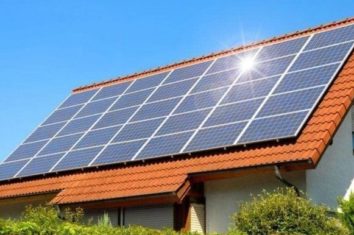Solar panels are one of the most exciting inventions of the last 50 years, able to harness solar energy and convert it into electricity. But how do solar panels work?
The original 20% efficient solar PV system was developed here in Australia and we have come a long way since the technology was first tested. You can now install solar panels in your home to help offset your energy bills.
Let's answer some burning questions about solar panels.
How do solar panels work?
Solar panels generate electricity using the light produced by the sun. Sunlight is converted into electricity on contact with the panels: photovoltaic cells (known as photovoltaic cells) inside the panels create a moving electrical charge that is then fed into your home (after the DC is converted to AC). .
Energy from solar panels can be returned to the grid to help offset your electricity bill, although you can store energy for later use with your home battery. Either way, the meter will check electricity consumption and generation, and your home will use solar energy first before relying on the grid (unless the electricity goes out).
How much do solar panels cost in Australia?
The price increases depending on the scale of installation of solar panels. Solar Choice has an excellent guide to the cost of solar panels of various sizes in every major city in Australia.
Below is the Solar Choice solar system cost estimate for October 2022 for a 7kW system, which is the standard solar system used in rooftop solar homes. This price includes an initial incentive and a tax on goods and services.
- Adelaide, South Africa: $5,790
- Brisbane, Queensland: $7,090
- Canberra, ACT: $6,260
- Darwin, Northern Territory: $10,020.
- Trunk, BAGS: $7,770.
- Melbourne, Victoria: $6,320
- Sydney, New South Wales: $6,000.
- Perth, WA: $9,120.
How many solar panels do you need to power your home?
For solar panels to work efficiently, the system must reflect the energy consumption of your home. You don't want to produce less energy than you consume, although solar panels won't hurt you as you will still benefit from their energy production.
According to Choice, a 5kW system is enough for most homes, but it has fewer panels and more kilowatts (kW). For example, a 24-panel system consisting of solar panels with a diameter of 275 cm would be capable of producing about 6.6 kW, which is enough for most homes.
Just keep in mind that you will need rooftop space. Solar panels take up a lot of space.
Should I add batteries to my solar system?
If you want to use more of the solar power you generate and rely less on the grid, a battery can help you use it at night when the sun isn't shining by using the stored energy your panels generate during the day. Solar panels typically cost between $800 and $2,000 depending on kilowatts. However, you don't need batteries to run solar panels.
How long do solar panels last?
Solar panels typically last about 25 years, according to Skyline Solar, but their efficiency can decline over time. To get the most out of them during this time, make sure you properly care for them (i.e. brush them). It will also improve the performance of the solar panels and reduce performance degradation over time.
In addition, cheaper and lower-quality solar panels may not last as long as more expensive ones, so it is recommended to shop around and compare models.
How to clean solar panels?
You can hire a janitor online, as with most house cleaning jobs, but if you want to do it yourself, Shoalhaven Solar recommends using water and a soft, non-abrasive cloth or sponge to remove dirt. Use a scraper or mop to remove residue after the first cleaning. Do not use soap that is stronger than detergent and only use soap when you need it.
What are the disadvantages of solar energy?
While solar power can lower your energy bills, it's worth considering all the potential downsides depending on your living situation.
First, they are permanent fixtures on the roof, which essentially forbids them from being tenants unless you have a special agreement with the landlord and the property. If you're not renting a house, make sure the panels are placed on a part of the roof that doesn't bother you. If you don't like the position of the roof panels and want to move them, this can increase the cost.
That's another big issue: cost. We previously reported that a 7 kW solar system in Sydney would cost homeowners around $6,000, which while not a ridiculous amount, is still quite an expensive purchase. Keep this in mind before paying a professional to install a system and before buying and installing a battery (which can add $800 to $2,000 to your bill).
This cost is reduced by the fact that you will not pay such a high electricity bill, but it is a high initial price .
Finally, keep in mind that solar energy is weather dependent as its effectiveness is limited on cloudy days and not available at night as sunlight is not being used. While this isn't a problem for most Australians, as there's enough sunshine for everyone, it's something to keep in mind if you're puzzled by suspicious electricity bills after a cloudy month.
This article explains how solar panels work, not buying advice. Before you buy solar panels, make sure they are right for your home and lifestyle.



